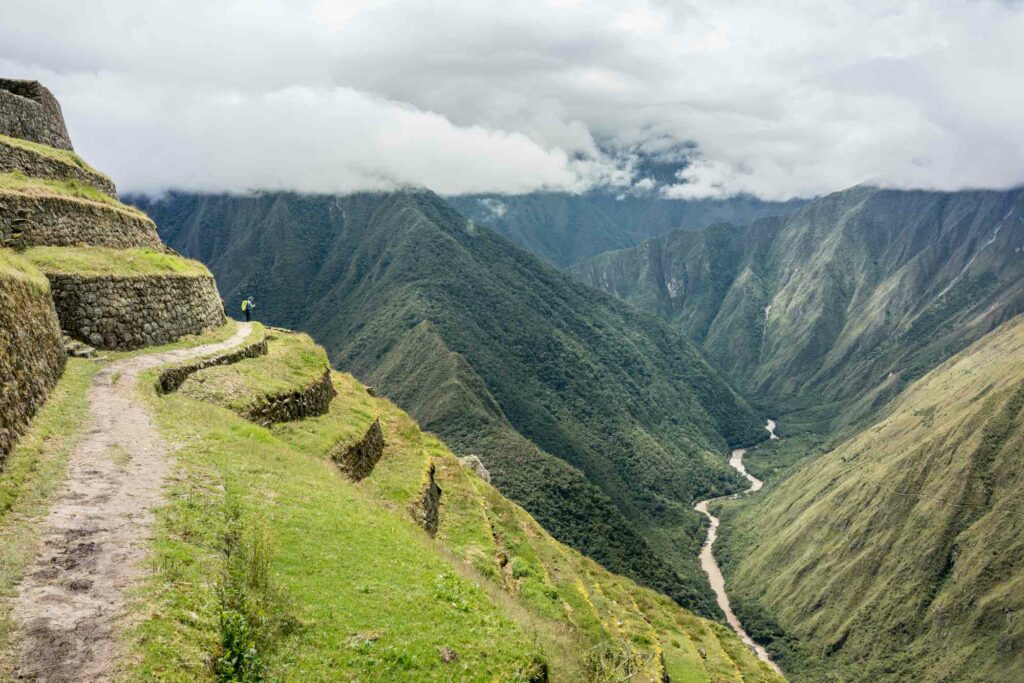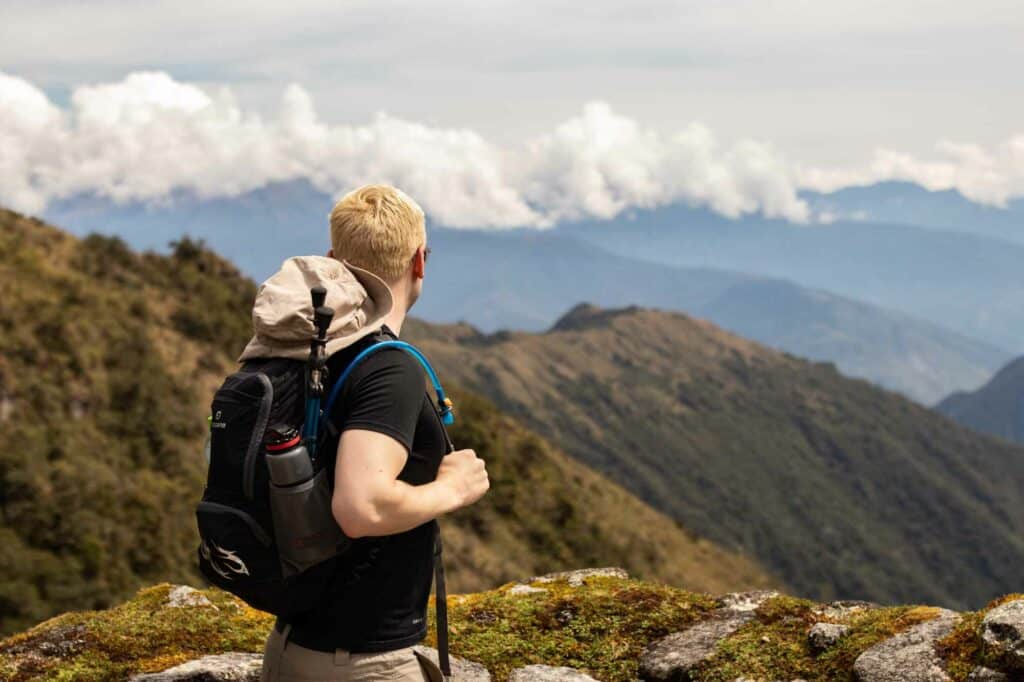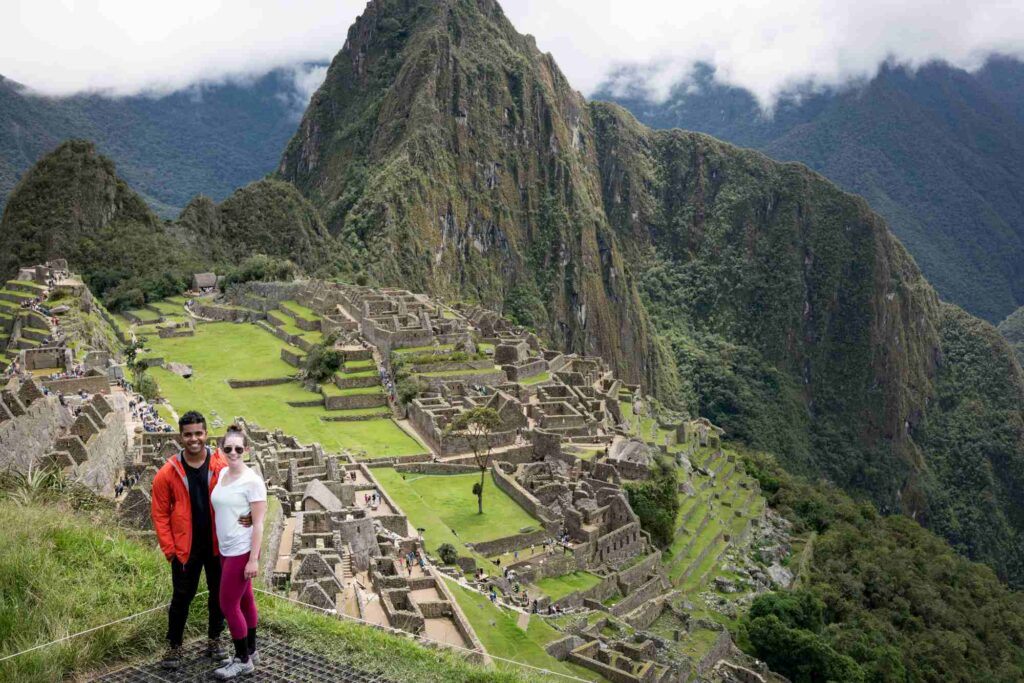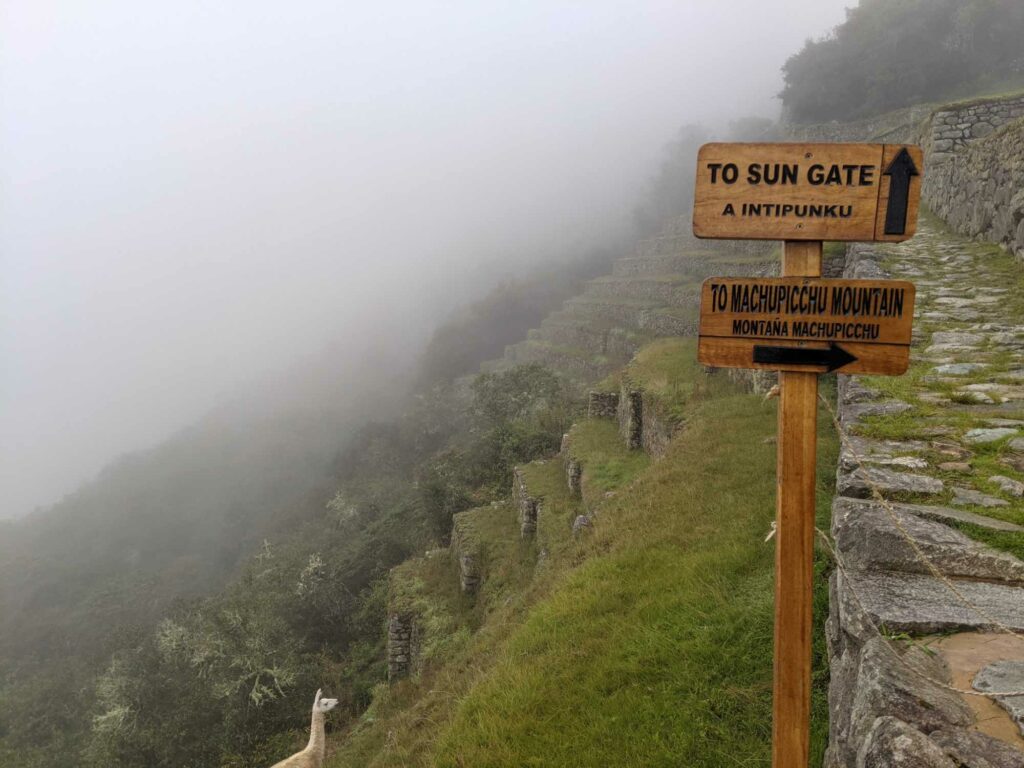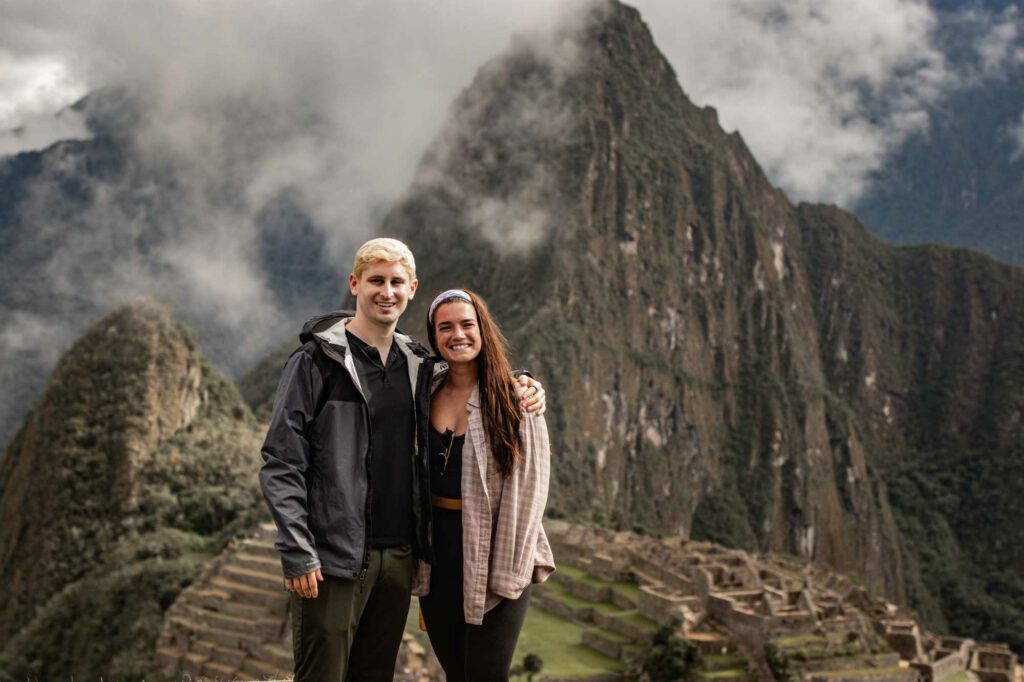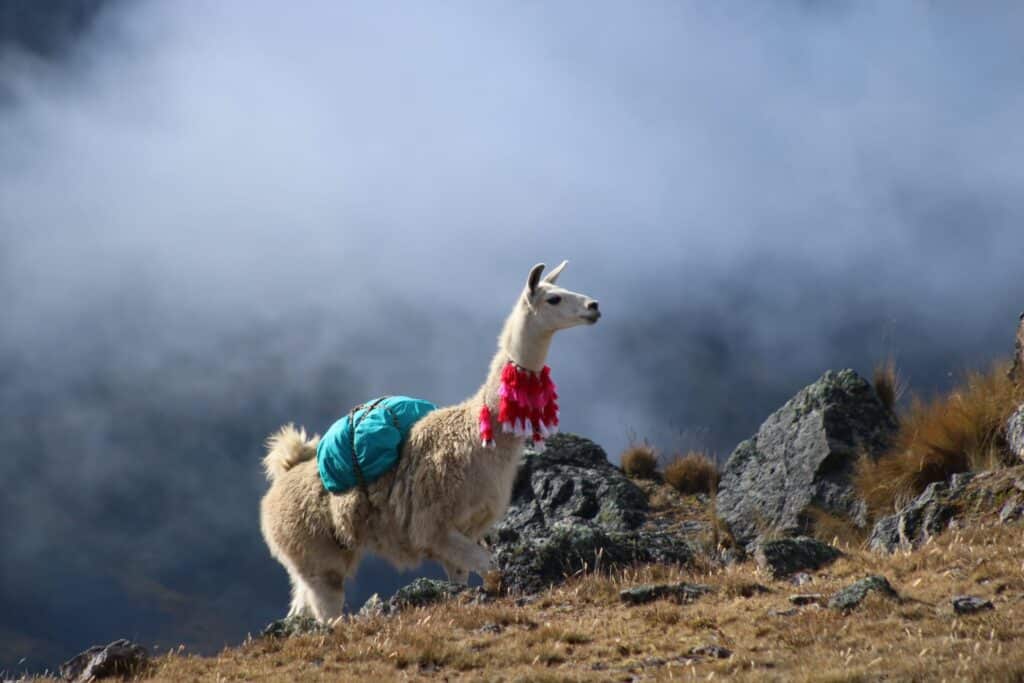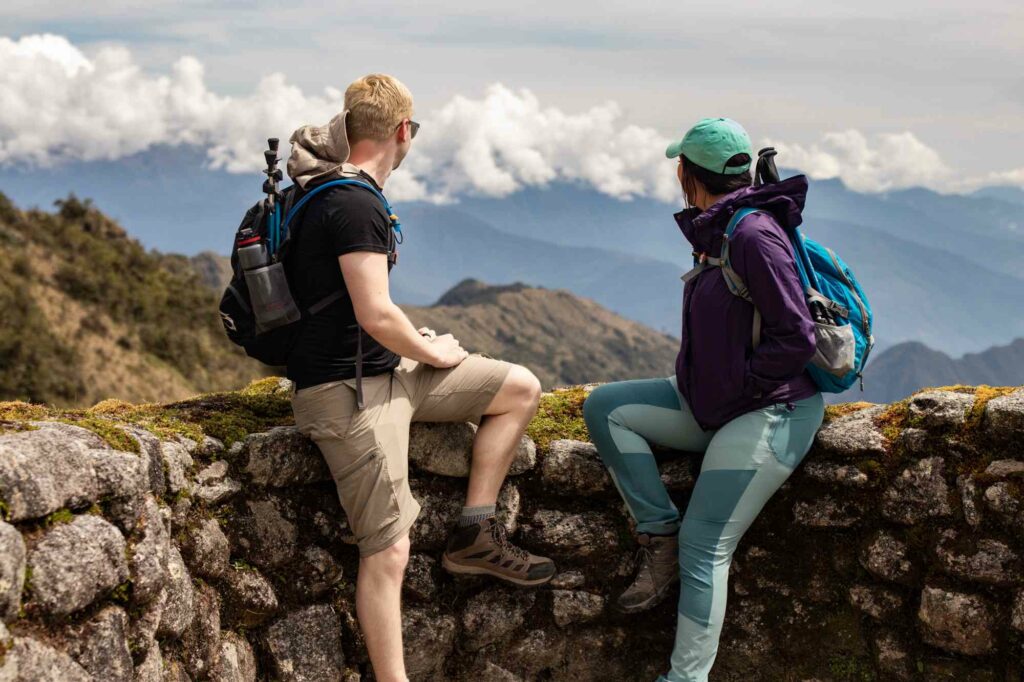The Ultimate Inca Trail Guide: Everything You Need to Know
If you’re looking for an adventure, look no further than the Inca Trail. This ancient trail leads to Machu Picchu, one of the most beautiful and mysterious sites in the world. But before you can hike the Inca Trail, you need to know a few things about it. In this guide, we will provide everything you need to know about the Inca Trail, from how to get there to what to pack!
Inca Trail Trek - Guide
What are the Inca Trail route options?
The Inca Trail is a 40-mile trek through the Andes Mountains from Cusco to Machu Picchu. There are several different routes you can take, depending on your experience level and the time you have available. The most popular route is the Classic Inca Trail, which takes four days to complete and passes many of the most important Inca ruins along the way. Other routes include the Short Inca Trail (2 days) and Salkantay Trek (5-7 days).
Four are three main Inca Trail routes:
- 4-day Inca Trail
- 5-day Inca Trail
- 2-day Inca Trail
- Salkantay Trek+ Classic Inca Trail
Inca Trail 4 Days
The Classic Inca Trail is the most popular route and takes four days to complete. The 4 day Inca Trail trek begins in km 82, passing through many ancient ruins, including Llactapata, Runkuracay and Sayacmarca. On the fourth day, you will reach Machu Picchu—an unforgettable experience!
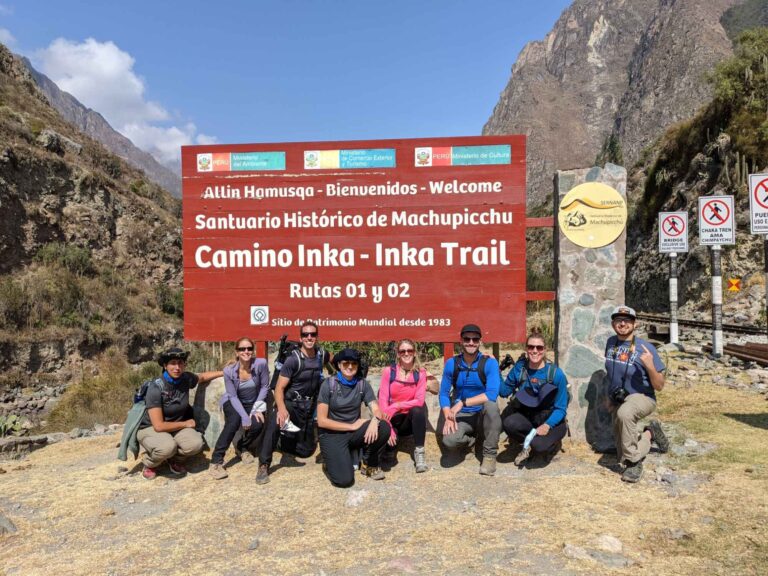
2-Day Short Inca Trail - 2D/1N
If you don’t have four days to spare, the two-day Inca Trail is a great option. This route will take you from Cusco to Km104 and then to Machu Picchu. The trek includes spectacular views of the Andes Mountains as well as several important archaeological sites, including Runkuracay and Sayacmarca.
This is a single day of walking with a stay-over in Aguas Calientes. For this reason, some tour operators refer to this route as the 1-day Inca Trail.
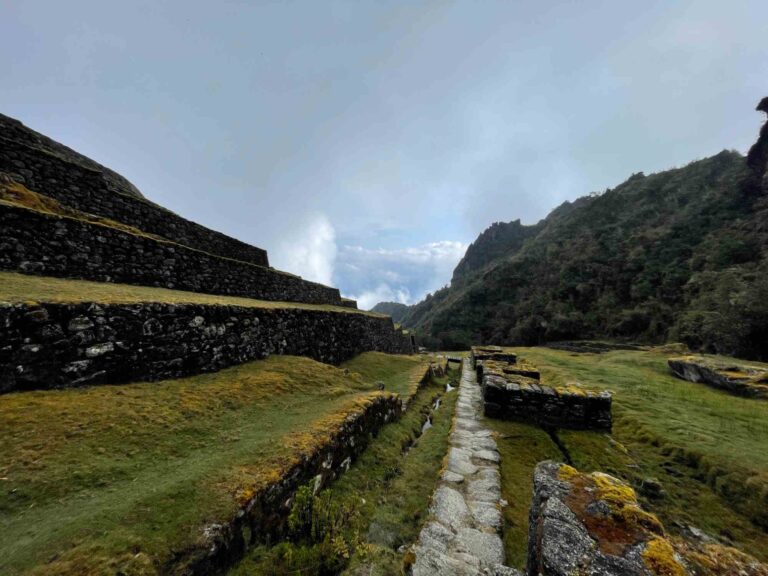
5-Day Inca Trail - 5D/4N
The five-day Inca Trail trek is the longest option and takes you through the most remote regions of the Andes. This route takes you past several important archaeological sites, including Llactapata, Phuyupatamarca, and Winaywayna. On the fifth day, you will reach Machu Picchu—an unforgettable experience!
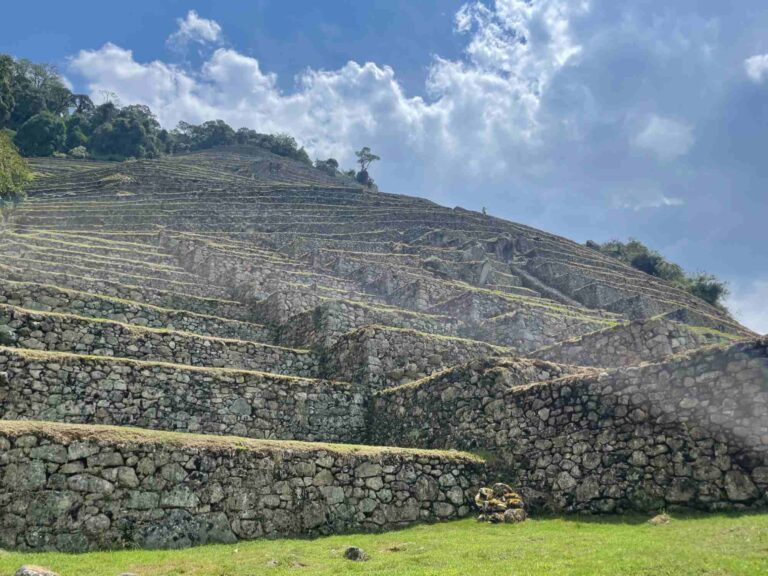
7 Day Inca Trail + Salkantay Trek
This seven-day trek combines the Classic Inca Trail with the Salkantay Trek and gives you an even more comprehensive experience. This route takes you through a stunning variety of landscapes, including snow-capped mountains and lush cloud forests. You’ll visit several important Inca ruins along the way, including Llactapata, Runkuracay, Sayacmarca, Wiñaywayna, and Machu Picchu.
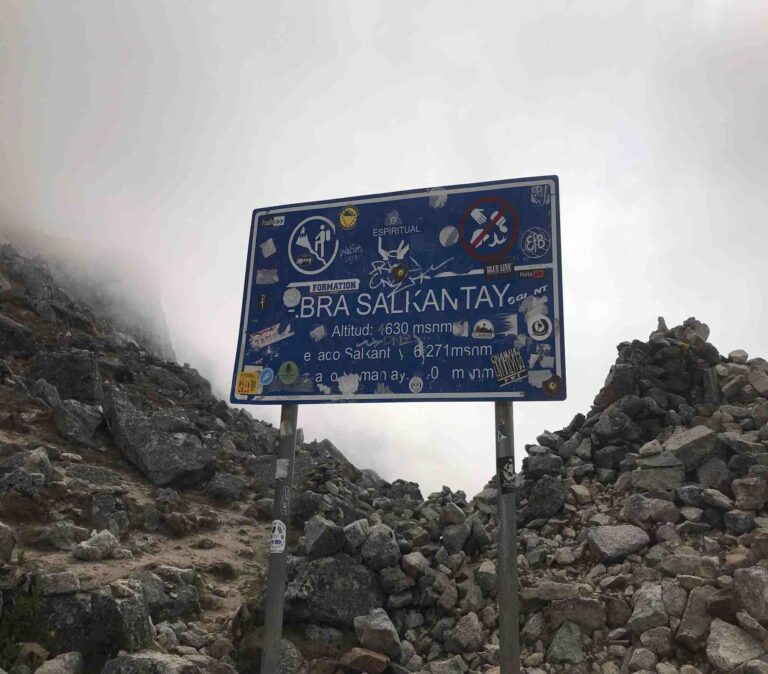
How Long Is The Inca Trail?
The length of the Inca Trail depends on which route you take. The Classic Inca Trail is a four-day trek is 26miles / 43km long, while the Short Inca Trail is two days is 7.5 miles – 12km long.
How Hard Is The Inca Trail?
The Inca Trail is considered to be moderately moderate to difficult. The altitude and the terrain can make it challenging, but with proper preparation you should be able to complete it without any major issues. It’s important to set aside enough time for acclimating to the high altitudes before beginning your trek.
Check out this article for Training for the Inca Trail
How Much Does The Inca Trail Cost?
The cost of the Inca Trail depends on which route you take and how many people are in your group. Generally speaking, the Classic Inca Trail is more expensive than the Short Inca Trail, and both require you to purchase permits in advance. The Salkantay Trek is usually less expensive, but it still requires a permit as well.
- Local Operators: $600-$800 per person
- International Trek Operators: $1000-2000 per person
- Luxury Tours: $2000-$3500 per person
When Is The Best Time To Hike The Inca Trail?
The best time to hike the Inca Trail is from April to October. This is when the weather is most favorable and there are fewer restrictions on permits. It’s important to note that you’ll need to book your permit at least four months in advance, so plan accordingly!
Are you looking to hike the Inca Trail during out-of-season months? Read our best time to hike the Inca Trail article.
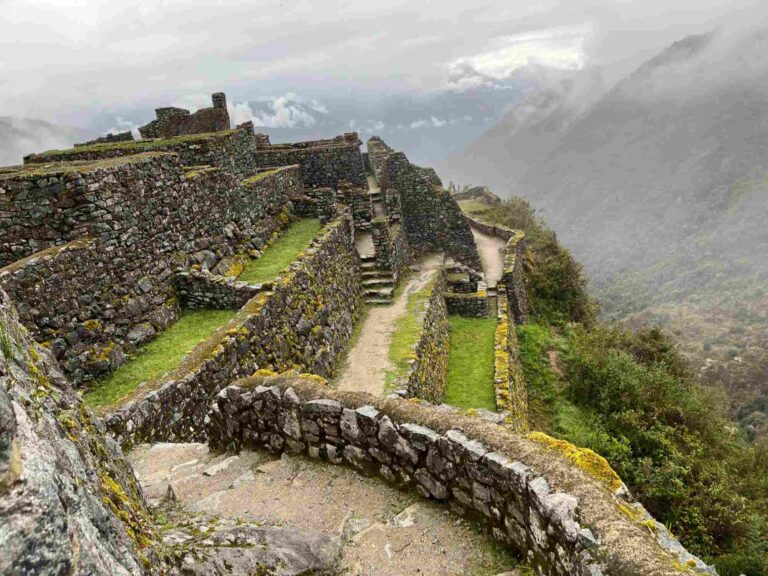
What Are The Logistics For Hiking The Inca Trail?
When planning your Inca Trail trek, you’ll need to consider several logistics. You’ll need to book a permit in advance, arrange for transportation to and from Cusco, hire a guide or porter service, and pack the necessary gear. Make sure you have all the necessary information before you set out on your adventure!
You Need A Permit For The Inca Trail
If you plan on hiking the Inca Trail, you’ll need to purchase a permit in advance. Permits are limited to 500 people per day, and they must be booked at least four months in advance. You can purchase your permit online or through a travel agency.
Note: the Inca Trail permits often sell out up to a year ahead for the popular months (May-June-july-August). so you need to book well in advance!
You Need A Registered Guide To Hike The Inca Trail
You must have a registered guide with you when hiking the Inca Trail, and they are required to carry your permit with them at all times. Guides can be hired through travel agencies or directly from local companies. They are experts in the area and provide invaluable assistance on your journey.
This means you’ll need to go through an operator to purchase your permit.
You Cannot Purchase Last-Minute Inca Trail Tickets
It is not possible to purchase Inca Trail tickets last minute, as they must be purchased in advance. As previously mentioned, permits are limited to 500 people per day and must be booked at least four months ahead of time. Make sure you plan your trip accordingly!
Do I Need To Train For The Inca Trail?
Yes, it is important to train for the Inca Trail. The altitude and terrain can be challenging, so you’ll want to make sure your body is in peak physical condition before you set out. Depending on the length of your trek, you should dedicate at least a few weeks to acclimating and preparing yourself for the journey ahead.
Following a 1-2 month Inca Trail training program will help you cope better with ascents and high altitudes.
- Sacred Valley day tour
- Rainbow Mountain day trip
- Humantay Lake day tour
- Machu Picchu day tour
How Do I Deal With Acclimatisation and Altitude Sickness On The Inca Trail?
Acclimatising and dealing with altitude sickness is an important part of preparing for the Inca Trail. The higher you climb, the more difficult it will be to breathe. To minimise the effects of altitude sickness, make sure you drink plenty of fluids and get plenty of rest. You can also take medication or supplements that help with symptoms such as nausea and headache. Additionally, it’s important to take your time when ascending – don’t push yourself too hard!
Spend time acclimatising in cusco: It is important to spend a 2 days in Cusco before attempting the Inca Trail. This will allow your body time to adjust to the altitude
Maximum height of the Inca Trail: The Inca Trail ranges from 2,500 to 4,200 meters (8,200 to 13,800 feet) above sea level.
Maximum height of the Cusco city: The altitude of the city of Cusco is 3,400 meters (11,200 feet). is possible that you may start experiencing altitude sickness symptoms while in this city. But it’s better to experience it here where medical assistance is readily available than higher up on the slopes heading to Machu Picchu.
What Should I Pack For The Inca Trail?
When packing for the Inca Trail, make sure to bring plenty of warm layers and clothing that can handle moisture. A good pair of trekking boots is a must, as are water bottles and snacks. You should also pack sunscreen, insect repellent, a first aid kit, and a sleeping bag. To lighten your load, consider renting gear from the local operator in Cusco instead of packing it all yourself. You may also like the ultimate packing fo the Inca Trail
How Do I Choose An Inca Trail Tour?
Choosing the right Inca Trail tour depends on your budget, preferences and travel style and Most importantly, the company you select needs to be an officially registered tour operator.. You can research different companies online and read reviews from past customers. It’s also a good idea to speak with a travel consultant or contact the registered tour operator directly so you can get more information about their services and tour packages.
Make sure basic prices include the following:
- Transport to the start point (KM82)
- Entrance fees for the Classic Inca trail and Machu Picchu
- All your meals on the trek
- A full complement of support staff (porters and a guide)
- Camping gear (tent, sleeping mat)
- A guided tour of Machu Picchu
- Your return bus ticket and train ticket back to Cusco from Aguas Calientes
Finally, make sure you book your tour well in advance to ensure availability and secure the best price. With the right planning
What Amount Should You Tip For The Inca Trail?
At the end of an Inca Trail tour, it is customary to tip the guide and porters. A general rule of thumb is to tip 10% of the total cost of the tour, but you can always adjust this amount according to your own budget and level of satisfaction with the service. It is also important to note that guides and porters are often given tips in cash, so make sure you bring enough money with you on the trip.
Tipping is an important part of the tour experience, and it’s a great way to show your appreciation for the hard work and dedication of your guides and porters.
Is The Inca Trail Dangerous?
The Inca Trail is generally considered safe, though there are potential hazards that must be taken into consideration. Weather conditions can change quickly and the terrain is often steep and uneven. Additionally, altitude sickness can be a serious issue on the trail. It is important to prepare for these conditions by doing research and speaking with a tour operator before you begin your journey.
Do I Need Travel Insurance For The Inca Trail?
Yes, travel insurance is highly recommended for anyone trekking the Inca Trail. Travel insurance can provide coverage in the event of an unexpected illness or injury, lost or damaged luggage, and other unforeseen circumstances. Make sure to check the policy details before you purchase so you know exactly what is covered.
Why Is The Inca Trail Famous?
The Inca Trail is famous for its spectacular scenery and fascinating history. The trail leads to the ancient ruins of Machu Picchu, a once-forgotten city of the Inca Empire. The trail also winds its way through the stunning Andean mountains and passes by quaint villages, lush valleys and deep gorges. The Inca Trail is a unique experience that will give you an insight into the fascinating culture of South America.
Conclusion
The Inca Trail is a unique and remarkable journey that requires careful planning and preparation. By following the tips outlined in this article, you can ensure that your Inca Trail experience will be safe and enjoyable. By researching tour operators, packing properly, and taking the necessary precautions for altitude sickness, you can make the most out of your journey on the Inca Trail.

Travel New Posts


